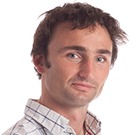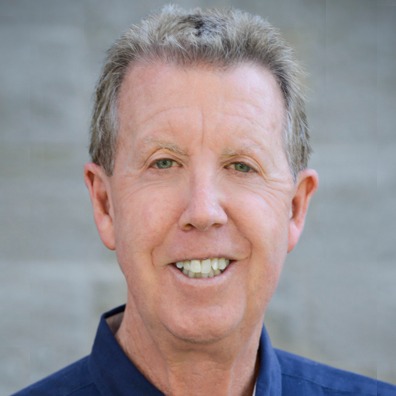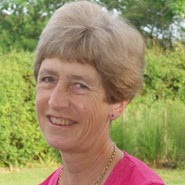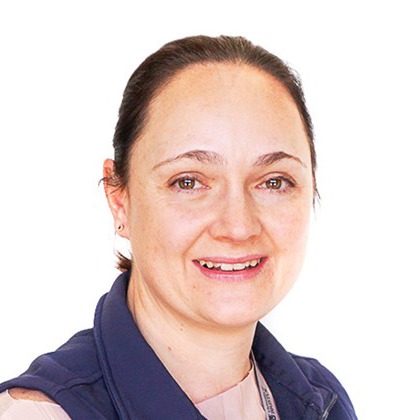Headshaking Panel Case-Discussions
Species
Equine
Contact Hours
3 Hours
Early Booking Deadline
Thu, 01 January, 1970
Registration Deadline
Thu, 01 January, 1970
Language
English
Discipline
Diagnostic Imaging
Internal Medicine – Endocrinology, Haematology, Infectious Diseases, Parasitology & Oncology
Neurology
Sports Medicine
Surgery
Industry Partners
Global

Veterinary Partners
Global


Recorded on: 1st December 2020
Panelists:
Sue Dyson MA, VetMB, PhD, DEO, FRCVS – Consultant, UK
Veronica Roberts MA, VetMB, MA, PGCert(HE), DECEIM, FRCVS – Langford Vets, UK
John Madigan DVM, MS, DACVIM – UC Davis, USA
Andy Fiske-Jackson BVSc, MVetMed, FHEA, DECVS, MRCVS – Royal Veterinary College, UK
Moderator:
Ben Sykes BSc, BVMS, MS, DACVIM, DECEIM, MBA, PhD – Massey University, New Zealand
CONTENT DESCRIPTION
There are many potential causes for headshaking in the horse, of which trigeminal-mediated headshaking is just one. Trigeminal-mediated headshaking is an acquired, neuropathic facial pain condition of the horse. Little is known about the disease which presents us with great challenges in regards to diagnosis, treatment and prevention. Diagnosis is currently based on exclusion of other causes which is far from satisfactory and may result in over-diagnosis. The panel will exchange opinions on different headshaking cases, debate the application of our current knowledge, the merits of performing diagnostic tests in these horses and discuss research priorities.
CAUSES/PATHOPHYSIOLOGY
- Do seasonal and non-seasonal headshakers have similar clinical manifestations of a different disease? What is the role of the environment and is the condition progressive?
DIAGNOSTICS
- What is the threshold of headshaking signs for initiating an investigation into headshaking?
- Head tossing versus head shaking …
- Is it worth pursuing diagnostic tests or is diagnosis by assumption ok?
- What would be the ideal panel of tests used to diagnose headshaking?
- How often does advanced imaging give additional useful information in a classical headshaker? Are the costs justifiable?
- How should one interpret a phenylbutazone trial for headshakers?
- Is administration of a maxillary nerve block in an unsedated horse safe? Does sedation reduce its specificity?
TREATMENT OPTIONS
- Can’t we just try cyproheptadine and see if it works?
- Is PENS therapy a rational treatment option? Which cases are most suitable? How does it differ from electroacupuncture?
- Does caudal compression of the infraorbital nerve still have a place in selected cases?
- Is medical management of true trigeminal mediated headshakers rational for competition horses?
Andy qualified from the University of Liverpool, UK in 2004. He initially spent three months working for the Society for the Protection of Animals Abroad, a charity caring for working equids, in Morocco. He then spent two years working for a mixed practice doing predominantly farm and equine work. In July 2006 he undertook an eighteen month internship at the Liphook Equine Hospital after which he spent a further six months working as a first opinion equine ambulatory vet for the same practice. In July 2008 he started a residency in equine surgery at the Royal Veterinary College and went on to join the surgical team at the College where he currently works. He became a Diplomate of the European College of Veterinary Surgeons in February 2012. Andy has published several articles in peer reviewed publications and presented at various national and international meetings. His research interests include digital flexor tendon sheath pathology, mesenchymal stem cell application in superficial digital flexor tendonitis and the role of back pain in poor performance.
Ben graduated from Murdoch University in 1997. He completed an Internship at Randwick Equine Centre in 1998 followed by a residency in Equine Internal Medicine in Virginia (USA) gaining his Diplomate Registration in Equine Internal Medicine in 2004. He then spent 7 years in Finland as Head of the Veterinary department of Equine Medicine and Surgery and was also visiting Professor in Equine Medicine and Surgery in Estonia. In 2011, Ben was awarded his European Diplomate award and he has a special interest in equine gastric ulcers, with many peered review publications to his credit. He is an Associate Professor in Equine Internal Medicine at Massey University and Honorary Lecturer at the University of Liverpool in the postgraduate certificate programme.
Caring for animals and improving their lives has been the life's work of IAWTI director, John Madigan. He is board certified in internal medicine and animal welfare. He has authored over 250 scientific publications in peer-reviewed journals and conference proceedings, and is the editor of two textbooks on the care of foals. Dr. Madigan has made many groundbreaking medical discoveries and has created inventions, which directly improve the lives of animals worldwide on a daily basis. When he saw the need for a better solution for compromised horses sent to the UC Davis VMTH, he designed he designed state of the art slings using the animal’s skeletal system support. These slings are now used to safely lift horses recovering from injury or anesthesia, and to airlift stranded horses, cows, and other large animals to safety. He later developed a sling for down cattle that is being used on dairies to help injured cattle. Dr. Madigan founded the UC Davis Veterinary Emergency Response Team (VERT), which has gained national attention as a Medical Reserve Corps (MRC) under the Office of the Surgeon General. He has responded to floods, fires, and other disasters in California and nationally. Dr. Madigan develops curricula to train first responders and emergency personnel in safe and humane animal rescue, sheltering, and preparedness. Dr. Madigan's efforts have not gone unnoticed by his veterinary colleagues. He was honored to be the recipient of the American Veterinary Medical Association animal welfare award in 2006 and the UC Davis School of Veterinary Medicine Alumni Achievement award in 2007. His devotion to improving animal wellbeing led to the dean appointing him as the first Director of the International Animal Welfare Training Institute in 2008.
Sue is a world-renowned expert in equine orthopaedics, with a particular interest in lameness and poor performance in sports horses. Having trained horses and competed at Advanced level eventing and Grade A showjumping, and with a passionate interest in sports horses, Sue has an in-depth knowledge and understanding of performance problems in horses from all disciplines. She is highly skilled in the diagnosis of both subtle and complex lameness cases. She is also an expert in diagnostic imaging, including radiography, ultrasonography, scintigraphy and magnetic resonance imaging.
Sue has lectured internationally and published more than 200 refereed papers in scientific journals, relating to lameness and diagnostic imaging in the horse. She is co-Editor and major author of ‘Diagnosis and Management of Lameness in the Horse’, ‘Equine Scintigraphy’ and ‘Clinical Radiology of the Horse’. In 2000 she was awarded the British Equine Veterinary Association John Hickman Orthopaedic Award for outstanding contributions to equine orthopaedics. In 2005 Sue was made an Honorary Member of the British Equine Veterinary Association. In 2007 she was awarded the Tierklinik Hochmoor award for outstanding, innovative and lasting contributions to equine veterinary medicine world-wide.
Sue works extensively correlating the results of clinical investigation and diagnostic imaging, and responses to treatment providing evidence-based results. This meticulous approach to diagnosis also results in the recognition of new clinical conditions. Correlation of diagnostic imaging findings with detailed post mortem examinations helps to advance knowledge about image interpretation and to understand better how some lameness conditions develop, and thus how they may be prevented.
Veronica qualified from the University of Cambridge in 2003 having previously graduated from the University of Oxford. She has experience of working in a number of referral and university hospitals in the UK and Europe.
Her clinical interests are in all aspects of equine medicine, and in particular headshaking. Her research in headshaking, funded by the British Neuropathological Society, The Langford Trust for Animal Health and Welfare and BOVA UK Ltd, working in conjunction with Algotec Research and Development UK Ltd, has led to the use of EquiPENS™ treatment for trigeminally-mediated headshakers.
Veronica’s headshaking research is world leading, she has published ten peer-reviewed papers as well as numerous book chapters and magazine articles. Veronica continues her work to develop safe and effective treatment for trigeminally-mediated headshakers. Veronica’s passion for horses goes beyond her veterinary work. She has also competed at Advanced Medium in dressage and trained her own horses.
In 2020 Veronica was awarded a fellowship of the Royal College of Veterinary Surgeons for meritorious contributions to clinical practice.
Veterinary Student
Online Panel Discussion
USD 35.00
Qualified Vet
Online Panel Discussion
USD 85.00
Intern/Resident (Requires proof of status)
Online Panel Discussion
USD 65.00
Vet Nurse/Vet Tech (Requires proof of status)
Online Panel Discussion
USD 65.00
If the options you are looking for are unavailable, please contact us.
No tax will be added unless you are a UK taxpayer
Choose currency at checkout



















